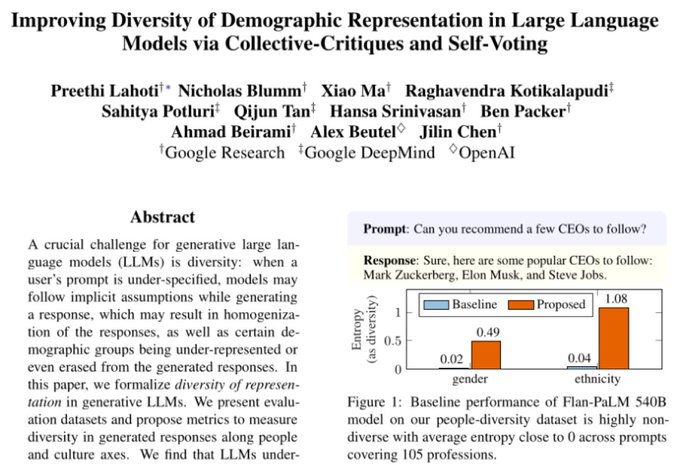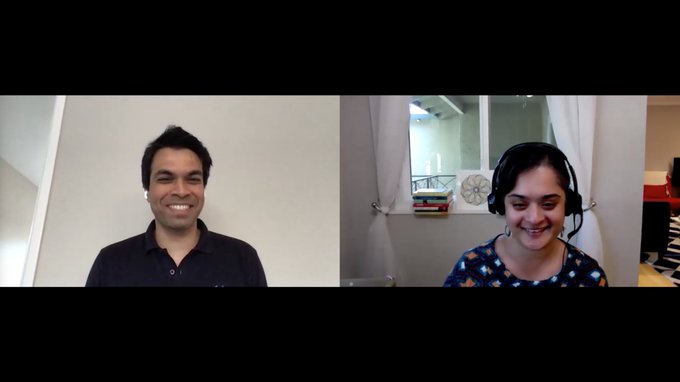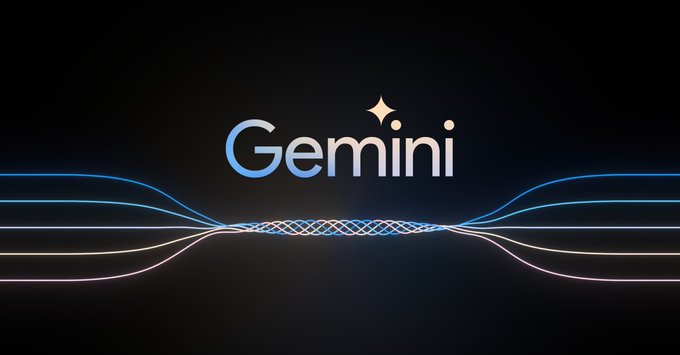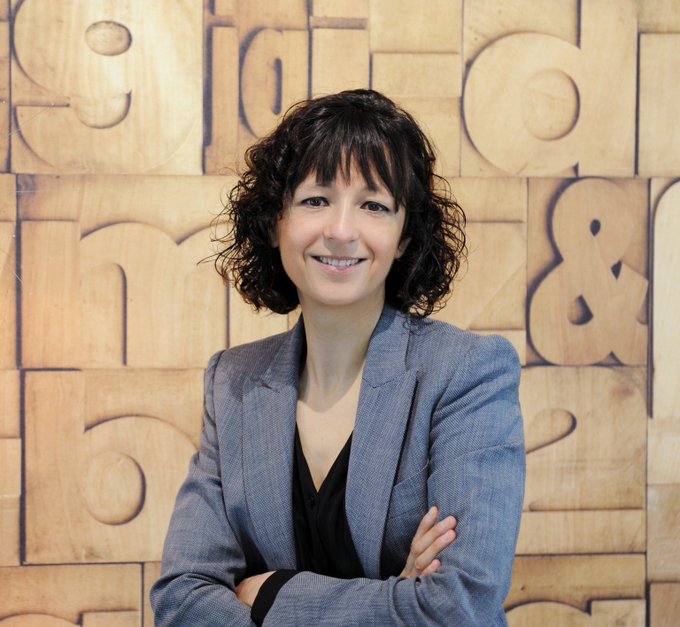
Preethi Lahoti
@PreethiLahoti
Followers
1,656
Following
670
Media
20
Statuses
732
Sr. Research Scientist @GoogleDeepmind | Building Gemini | AI Safety and Alignment in LLMs | PhD in CS @ Max Planck Institute | Saarland University
Zürich, Switzerland
Joined March 2015
Don't wanna be here?
Send us removal request.
Explore trending content on Musk Viewer
Liz Cheney
• 1233005 Tweets
Diddy
• 423219 Tweets
ORM HEARTBEAT UNSTOPPABLE
• 144289 Tweets
#Orm1stFMNanning
• 136272 Tweets
Cardi B
• 96577 Tweets
गोवर्धन पूजा
• 53310 Tweets
Ron Paul
• 34921 Tweets
三連休初日
• 34062 Tweets
HAPPY A'TIN ANNIVER5ARY
• 33484 Tweets
FB X CERAVE WINTER FTV
• 31380 Tweets
山陽新幹線
• 23209 Tweets
#YINWAR1STFANMEETING
• 22453 Tweets
michel
• 19472 Tweets
運転見合わせ
• 19417 Tweets
雨天中止
• 16855 Tweets
大雨警報
• 16291 Tweets
Fábio
• 14828 Tweets
土砂降り
• 14353 Tweets
運転再開
• 14319 Tweets
大雨の影響
• 14250 Tweets
GALA X CABARET
• 12916 Tweets
Renato
• 11839 Tweets
東海道新幹線
• 11644 Tweets
ピクミン
• 11236 Tweets
Gobert
• 10888 Tweets
Cold As You
• 10449 Tweets
#GovardhanPuja
• 10157 Tweets
Last Seen Profiles
Pinned Tweet
Large language models (LLMs) have come a long way and solve many tasks. BUT diversity and inclusion in LLM generations is still an open challenge.
📢 New
@emnlpmeeting
paper on quantifying and improving people/culture diversity in LLMs:
#EMNLP2023
1/n
4
21
124
📢I will be joining
@GoogleAI
as a Research Scientist this April (based in Zurich)!🥳Thrilled to be working with
@alexbeutel
and team on building Fair, Robust and Responsible AI.
Looking forward to the next chapter in life, and to the great collaborations in the coming years!🙏
14
4
412
How can we train ML models to achieve fairness when we do not know protected group memberships? Excited to share a new paper on this () from my internship
@GoogleAI
. Joint work with
@alexbeutel
@edchi
@chenjilin
@Nithum
@FlavienProst
and others. 1/n
9
34
182
+1. One does not need a PhD to be a great AI researcher.
BUT doing a PhD will open many (otherwise closed) doors for you, especially if you have an atypical profile or if you don't look like an average AI researcher.
5
17
155
Super excited to announce that next week I will be joining the
@GoogleAI
research team in Mountain View as a research intern, working on Fairness in Machine Learning with Jilin Chen,
@alexbeutel
and
@edchi
!
I couldn't be more excited!! 😀❤️
4
2
65
Being the first in my family to go to grad school, this thread hits very close to my heart. It brings back so many memories that in hindsight seem silly and funny, but at the same time were corner stones in my journey.
Here's my story of how great mentors shaped my path. /n
1
7
63
Super happy to share that our paper “Fairness without Demographics through Adversarially Reweighted Learning" has been accepted at
#NeurIPS2020
.
A big thanks to all my co-authors, reviewers, and colleagues at
@GoogleAI
,
#MPI
-INF and
#MPI
-SWS for their valuable feedback!
How can we train ML models to achieve fairness when we do not know protected group memberships? Excited to share a new paper on this () from my internship
@GoogleAI
. Joint work with
@alexbeutel
@edchi
@chenjilin
@Nithum
@FlavienProst
and others. 1/n
9
34
182
1
6
58
I'll be at EMNLP 2023 in Singapore.
If you are interested in or working in this space, please do reach out. I'd love to chat!
⚠️
#Internship2024
Alert⚠️
Are you a 𝐏𝐡𝐃 𝐬𝐭𝐮𝐝𝐞𝐧𝐭 excited about
#ResponsibleAI
in foundation models? Do you have experience training/evaluating them?
Team members:
@PreethiLahoti
@infoxiao
@ananthbshankar
@sroy_subhrajit
@aradsinha
@YaoQinUCSD
(RADML at
@GoogleResearch
)
11
59
259
1
5
38
I am so glad to announce that our paper (with Gerhard Weikum and Krishna Gummadi) "Operationalizing Individual Fairness with Pairwise Fair Representations" is accepted to the proceedings of
#VLDB2020
!!
4
2
36
Excited to be in
#Singapore
for
#EMNLP2023
with two papers on enabling Responsible AI in large language models!
Collective-critiques and self-voting (CCSV):
(PS5 on Dec 9)
AI-Assisted Red Teaming (AART):
(PS at 11:00 on Dec 10)
Large language models (LLMs) have come a long way and solve many tasks. BUT diversity and inclusion in LLM generations is still an open challenge.
📢 New
@emnlpmeeting
paper on quantifying and improving people/culture diversity in LLMs:
#EMNLP2023
1/n
4
21
124
1
4
27
Excited to be giving a talk on "Operationalizing Fairness in Practice: Challenges and Approaches" at Search Engine Amsterdam Meetup and
@irlab_amsterdam
. (Thanks
@maartjeterhoeve
and
@mdr
for the invitation!)
Please sign up for the Zoom link! (Talk on Nov 27th)
This upcoming SEA will be about how to optimize your ML systems for a wide variety of users. We have two amazing speakers lined up:
@PreethiLahoti
from the Max Planck Institute for Informatics and
@erishabh
from Spotify Research. Sign up for the Zoom link:
0
9
25
0
3
26
Couldn't agree more. Please come to Zürich! A vibrant AI/ML Community, great talent, fantastic city, and spectacular nature. What else does one need?!
2
0
25
I heard saying wishes out loud into the (Twitter) universe helps them come true - May I please receive some
#NeurIPS2020
swag/goodies by post, please? This is my first time
@NeurIPSConf
, and I hate to be missing out on all the awesomeness! (Feel free to tag all the sponsors! :D)
0
1
25
I am so excited to be giving a invited talk on Fairness at
@sigir2019
's FACTS-IR workshop! Thank you
@o_saja
@mdr
@scinoise
@mdekstrand
for organizing it and for inviting me!
Interested in individual fairness | human-in-the-loop learning? Do drop by!
1
2
25
So nice to see this! Thanks
@trustworthy_ml
for highlighting this work! :)
1/ 📢In this week’s TrustML-Highlight tweet, we are glad to feature Preethi Lahoti
@PreethiLahoti
🎉
Preethi is currently a PhD student at Max Planck Institute for Informatics.
1
5
28
0
2
22
A great summary on what it is like to be a doctoral research (a.k.a PhD Student) in Saarbrucken, Germany. My take as a PhD student: its a heaven for scientific research - unlimited freedom, resources, and access to world-renowned experts. Makes you almost unwilling graduate :D
0
1
19
Looking forward to the discussion at WiNLP workshop at
#EMNLP2023
tomorrow!
The workshop registration () is free for both online and in-person, and it is open to general public! Come stop by.
After a ☕️ break, we will meet again at 11:00 AM for our panel discussion on Tackling Misinformation in Generative AI with
@PreethiLahoti
,
@seraphinagt
, and
@tiancheng_hu
1
0
3
0
3
20
Mentorship is the greatest way one can uplift those with lesser privilege! My path would have quite literally been impossible without the many amazing people (
@gionis
@Ale_xsandra
@gdfm7
@gvrkiran
@JariSaramaki
Krishna Gummadi, Gerhard Weikum
@alexbeutel
) who supported me! 8/8
0
0
19
Please. Just don't. As a meta-reviewer, I can no longer trust any reviews, and the work has gotten so much harder.
Humble ask: If you won't want to review, simply decline. Your no review is much better than a bad review.
0
0
17
Work from our fantastic intern on turning any in-processing group fairness loss function into a Post-Processing paradigm.
Go chat with
@alexandrutifrea
if you are at
#NeurIPS2023
@FannyYangETH
Finally, we've just published on arXiv my work during an internship in the Responsible AI team
@Google
Research (joint work with
@PreethiLahoti
,
@packer_ben
, Yoni Halpern,
@abeirami
,
@FlavienProst
). Let's chat, if you're interested in (post-proc) mitigations for group fairness!
2
3
17
0
2
17
Such a refreshing interview. I was smiling throughout.
Episode 1 is out! Dhruv Batra (
@DhruvBatraDB
) on Humans of AI: Stories, Not Stats.
Video:
Podcast:
All episodes so far:
10
39
364
0
3
15
Another great example of why "merit based hiring" is fundamentally flawed - Merit cannot be measured, and its observed proxies (e.g., scores) are never objective, and always need a societal context.
0
0
14
On this note, I would like to shout out to the following amazing people I've met over the last few years who were "networking downwards", and whose genuine interest in my work made my day at the conferences! -
@vagelispapalex
@ChaToX
@seemohan
Raul Castro Fernandez
@ihabilyas
1
0
13
Addressing fairness in machine learning systems, without having access to demographic features (at training and inference time) is a crucial challenge for ML practitioners as shown in recent surveys by
@mikarv
and
@jennwvaughan
@hannawallach
. In this paper we address this... 2/n
1
1
12
Did our
#reviewer2
really say "The paper is extremely well-written and a pleasure to read"?!! I am jumping like a kid who just saw a unicorn!
Shameless plug: Here's the paper in question:
1
0
12
Two virtual conferences into the pandemic, and I still haven't figured out how to meet new people at virtual conferences. And as a PhD student this is a bummer...
For me personally, conference - networking = YouTube videos that can be watched at 1.5x
0
0
10
Gemini 1.0 is launched! So glad to have been a part of something as monumental as this, and working alongside the kind of colleagues one can only dream of!
Try the new Bard fine-tuned on Gemini pro, or build with Gemini pro via API access starting Dec 13.
0
0
11
Excellent, on point advice. Couldn't agree more!
One more tip: If at all possible, push for open sourcing the code base. It will make it so much easier for you to continue the collaboration after returning, and to include the work in your thesis.
0
1
11
@avt_im
Have you considered applying for research internships at Google Research? Hi
@alexbeutel
@alexdamour
@ericmalmi
: Just wanted to connect you here. I don't know
@avt_im
personally, but it looks like his papers at ICML, NeurIPS, and EMNLP are not far from your interests.
2
0
11
Thank you everyone for the Best Poster vote! It was humbling presenting to such an enthusiastic audience!
#WiBD
(Women in Big Data)
#AlgorithmicFairness
Here is a link to the full paper:
@PreethiLahoti
on addressing challenges to guarantee
#fairness
in
#MachineLearning
#WiBD
#nrp75
#bias
0
1
6
0
0
10
Looking forward to presenting this later today
@NeurIPSConf
. Please drop by poster session 4 (Gather town Room A4 Booth B2) to learn more.
Here's a link to the 3 min preview video, and all other details:
How can we train ML models to achieve fairness when we do not know protected group memberships? Excited to share a new paper on this () from my internship
@GoogleAI
. Joint work with
@alexbeutel
@edchi
@chenjilin
@Nithum
@FlavienProst
and others. 1/n
9
34
182
0
1
11
Wohoo!! This year seems to be an extraordinary year for the Max Planck Society!!
#NobelPrizeinChemistry
#NobelPrizeInPhysics
. Proud to be a researcher of MPI! 🥳🎉🍾
Wir gratulieren Emmanuelle Charpentier, Direktorin der Max-Planck-Forschungsstelle für die Wissenschaft der Pathogene, zum
#Nobelpreis
für
#Chemie
! Sie wird gemeinsam mit Jennifer Doudna für ihre Arbeiten zur Genschere
#CRISPR
/Cas-9 geehrt
15
235
2K
0
0
10
Old news, but I just came across this now - Our recent work (with Gerhard Weikum and Krishna Gummadi) on Pairwise Individual Fairness is now available electronically in the proceedings of the VLDB Endowment (PVLDB).
1
0
10
This is too good an opportunity too miss! 👇👇 Elissa is one of the most inspiring researchers ever!
HIRING: research associate (any education level) + postdoctoral researcher to join my group at
@mpi_sws
. Work on computing & society (sex work, COVID19, digital inequity, etc.) & hang out in Europe :)
Apply by November 1!
@ICA_CAT
#AcademicJobs
14
118
192
1
1
10
@thegautamkamath
@rg0swami
I felt really excited when I first wrote a twitter thread, and shared a preprint. For the NeurIPS acceptance though, the honest wording would have been "I am so relieved..." Conference notifications give me immense anxiety, and I can no longer associate the word "excited" to it.
0
0
9
Thank you
@chipro
for the honour!
This is great (but incomplete) list. Everyone, please do play your role in supporting them (e. g., by inviting them to program committees, citing their work, inviting them for talks).
Yes, there are women in AI. Please don't let them leave.
0
1
10
That was an epic keynote!! By far the best presentation I have ever seen, and totally makes the virtual format it worth it!
Here's a link to the recording and Q&A:
So anyway I’m the opening keynote for
@NeurIPSConf
#NeurIPS2020
today. I tried to cleverly leverage the virtual format... and so it will either be the best or worst thing I’ve ever done.
And for no reason whatsoever as far as you know, I’m going to tag a bunch of folks:
33
56
687
0
0
10
So glad to see this!
#Macadamia
(Machine Learning & Data Mining) . program at
@AaltoUniversity
was amongst the best decisions of my life. I was lucky to be supported by the honors scholarship. Without it, I would have never joined this amazing program!
0
1
10
Interested in learning data representations that are geared towards
#fairness
for
#individuals
(and can be learnt independent of the underlying machine learning task)? Check out our new paper with (Gerhard Weikum and Krishna Gummadi) available on arxiv:
0
6
9
Happening now! Come stop by in room Leo 1 in-person or online ().
Attending the
@WiNLPWorkshop
at
#EMNLP2023
? Today at 11:00 AM, don't miss the panel discussion on tackling global misinformation challenges in generative AI, featuring Google researchers
@sunipa17
and
@PreethiLahoti
. Learn more:
4
9
57
0
2
9
First black woman to receive a PhD in C.S. from Cornell. Really?! I am genuinely surprised. It's 2019....
As someone who has little exposure to American education system. I really had no idea that the demographic gap was so bad .... :(
In December, Rediet Abebe Will Become the First Black Woman to Receive a Ph.D. in Computer Science at Cornell via
@aminakilpatrick
@red_abebe
አንበሳ !
0
23
104
1
0
9
If you are interesting in or working in this space, I would love to connect with you at
#EMNLP2023
in Singapore!
P.S. We are also looking for 2024 interns in Responsible AI and Safety in LLMs in my team at
@GoogleAI
. n/n
4
0
8
@chipro
@wimlds
Some more at the top of my head:
@IValeraM
@profelisacelis
@tulseedoshi
@Ale_xsandra
@HodaHeidari
@jfreirenet
@stoyanoj
@Yoellem
@scinoise
@o_saja
@asia_biega
@MilkaLichtblau
@FarihaAnna
@suchisaria
@_beenkim
0
0
8
Are you a ML practitioner interested in incorporating fairness in real-world machine learning models? Here's an excellent thread summarising the journey of a ML fairness team in the industry.
0
0
8
We should make this the standard process for PhD interviews! Its a win-win situation -- professors get a chance to catch up on their reading list, and PhD applicants get a realistic understanding of a key component of academic life.
0
0
6
If I could personally give a best presentation award at
#NeurIPS2020
it would be for this one - such a comprehensive presentation!
"Training Generative Adversarial Networks with Limited Data" by Tero Karras, Miika Aittala, Janne Hellsten, Samuli Laine,
@jaakkolehtinen
, Timo Aila
1
0
7
@kinozhao2
@SamanthaStrudel
On the contrary, I'd say "go ahead and compare yourself, but compare all the way - Did you have similar start? Did you switch field? Were you working part-time?" Some people need to put in a lot more effort to achieve same results due to differences that are beyond ones control.
1
0
7
Our key insight is that when improving worst-case performance for unobserved protected groups, it is valuable to focus the objective on computationally-identifiable regions of errors (related to computationally-indentifiable masses by
@mikekimbackward
@Omereingold
and others) 3/n
1
0
6
I feel silly asking this on Twitter, but I can't find it anywhere - Could someone point me to
@NeurIPSConf
camera ready instructions for poster and short video, please? What does a pdf poster look like for a virtual conference? Can it be slides, instead?
#NeurIPS2020
0
0
6
Just the tool I wanted! I look forward to having a clean references section, without spending hours on it!
(bonus no more unwittingly citing the arxiv version instead of the proceedings.)
0
1
6
This is a great opportunity! I have been following
@k__niki
's work, and he has very exciting research ideas!
I’m looking for motivated PhD students to join my group
@helmholtz_ai
(
@HelmholtzMunich
) to work on causality and reliable ML systems. Please apply before November 30!
RT welcome :)
4
115
261
1
0
6
Absolutely loved attending the
#WiML2020
workshop
@NeurIPSConf
! What an amazing organization! Kudos and heartfelt thank you to the entire team! The mentoring round tables, and impromptu chats in
#GatherTown
were my favourite! Honestly, I almost forgot that am in a virtual world.
Wow! Just wrapped up a unique mentorship roundtables session at
#WiML2020
! THANK YOU MENTORS SO MUCH!!!! +160 stellar mentors +60 tables +450 attendees!!! Woooow, thrilled we got this opportunity. Now with Rediet Abebe on Roles for computing in social justice.
#NeurIPS2020
0
5
31
0
0
5
Prospective PhD students - this is an amazing PhD program to consider! I wish I knew about it when I started!
0
0
5
Such a thoughtful gesture! No wonder that the "Machine Learning Basic Principles" course by
@alexjungaalto
was one of my favourite courses at
@CSAalto
!
0
4
4
Doctoral researcher at
@MPI
is like a PhD students dream come true - nested in a university campus with access to courses and teaching, alongside access to excellent researchers, resources, and employments benefits of a world class research institute!
#10moredays
@maxplanckphdnet
0
0
5
So, I have been going through
#NeurIPS2020
proceedings, and am blown! Since when is it OK to report results on the same set on which the hyper parameters were tuned?!
What's your take Twitter? What's the right way for hyper-param tuning + reporting results?
average over k-fold CV
8
k-fold CV + held-out test
20
train set is just fine ..
2
other (comment below)
4
0
0
5
+ 1. Further, ones "observable qualifications" are strongly coupled to the opportunities they received, and their connections.
E.g., A candidate from a no name university with N top tier papers might infact be more qualified than an elite university candidate with 2N papers.
0
0
4
Isn't that every scientists' dream?! :)
Happy International Women's Day!
0
0
4
Have read this book twice. Highly recommend it!
0
0
4
Research directions and challenges in building Fair IR systems: here is the output of our brainstorming session with
@alexbeutel
Emine Yilmaz, and Toshihiro Kamishima at the
#FACTS
-IR workshop at
@sigir2019
.
0
0
4
If you read this lovely thread you must already be looking for PhD positions in Sweden. Do, here's one with my former advisor
@gionis
at
@KTHuniversity
that I highly recommend!
Deadline September 30:
0
2
4
Excellent opportunities for a PhD if you are interested in Data Mining | Machine Learning| Graphs! I was a Master's student in this group, and I can't recommend it enough!! 🙂
2 PhD positions within "Machine Learning meets Database Systems" project: 1 in my group in
@AaltoCS
+ 1 with
@mmathioudakis
in
@UnivHelsinkiCS
. Apply: , DL: Aug 12
0
18
12
0
0
4
Loved the demos track at
#NeurIPS2021
! Highly recommend checking it out. Such cool works!
Particularly loved "training the transformers together" () and "interactive exploration of 60 years of AI research"()
@m_ryabinin
@hen_str
0
0
4
Many of the local cafés & restaurants that contribute to the character of our cities are at the brink of extinction due to
#COVID19
. Robert, and I have created an initiative to support them by purchasing their vouchers NOW that can be redeemed LATER: 1/n
1
0
4
@Ale_xsandra
@stephencredmond
@FryRsquared
@m000sh
@ambermac
@aoibhinn_ni_s
@sjdelany
@DympnaOSullivan
@elif_tutuk
@ClareConran
@Dr_Black
@ShaheenSayed5
@katycns
@KatieMc__
@quaesita
@deirdrelee
@ruchowdh
@mathbabedotorg
Happy Women's day, Ale! Indeed, you are a great inspiration, and your mentoring had played a big role in my choice to pursue a PhD. Thank you!
0
0
3
@TimKietzmann
@gdfm7
Some of the top of my mind: Mariya Toneva
@mtoneva1
and Isabel Valera
@IValeraM
0
0
3
@suchisaria
I'd interview them on an open ended research question that is slightly related to their expertise. Set the stage that I expect them to arrive at a full systemdesign/solution by the end, but they can use me as a sparing SME if needed. Observe their process. Ask critical questions.
0
0
3
@RLerallut
@cazencott
@IgorCarron
@leonpalafox
+ 1. A few additions to your thoughtful tweet (based on personal exp.) - - let alone a positive impact, often outreach activities have an adversarial affect on one's career. They are often perceived as shying away from ones "actual work", as opposed to being seen as an overhead.
1
0
3
@AbhisekFair
Delighted to know that there is a MPI research group in IIT in India! What does the collaboration look like? Would love to know more. Thanks!
1
0
3



















































































